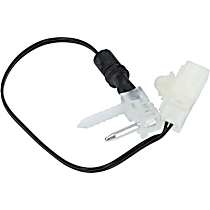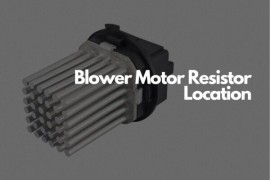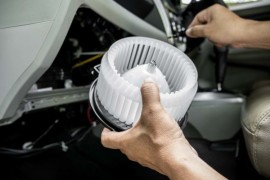{
"lazyNodes": false,
"abFitnotesFlag": false,
"abCrawlReviews": false,
"productOptionsCookie": false,
"orderDelayFlag": false,
"skipSessionCookie": false,
"covidMessage": false,
"fullTitleCookie": false,
"nrLoggerCookie": false,
"checkoutReviewCookie": false,
"productOptionSeqCookie": false,
"maintenanceFlag": false,
"bufferETACookie": false,
"multiShippingDiscountFlag": false,
"newFitmentFlag": false,
"surveyOptInFlag": false,
"crossSellFlag": false,
"skuMappingFlag": false,
"paySplitCookie": false,
"callDisableFlag": false,
"zipPaymentFlag": "u",
"hassleFreeReturn": false,
"lifetimeReplacement": false,
"cpn_off": false
}Need Help? Call Us1-866-529-0412
2014 Toyota Camry
2014 Toyota Camry Blower Motor Resistors
Refine by:
Shop Catalog
Showing 1 - 1 of 1 results
Sort by:
Part Number: GPD1712987
Guaranteed to Fit
$34.99
Vehicle Fitment
- 2014 Toyota Camry L 4 Cyl 2.5L
- 2014 Toyota Camry SE 4 Cyl 2.5L
- 2014 Toyota Camry Hybrid LE 4 Cyl 2.5L
- 2014 Toyota Camry SE Sport 4 Cyl 2.5L
- 2014 Toyota Camry Hybrid SE 4 Cyl 2.5L
- 2014 Toyota Camry Hybrid XLE 4 Cyl 2.5L
- 2014 Toyota Camry SE 6 Cyl 3.5L
- 2014 Toyota Camry LE 4 Cyl 2.5L
- 2014 Toyota Camry XLE 6 Cyl 3.5L
- 2014 Toyota Camry XLE 4 Cyl 2.5L
Product Details
Quantity Sold : Sold individuallyWarranty : 1 year GPD limited warrantyProp 65 Warning :
![]() WARNING: This product can expose you to chemical which is known to the State of California to cause cancer and birth defects or other reproductive harm. For more information go to www.P65Warnings.ca.gov.
WARNING: This product can expose you to chemical which is known to the State of California to cause cancer and birth defects or other reproductive harm. For more information go to www.P65Warnings.ca.gov.
Page 1 of 1 | Showing 1 - 1 of 1 results
Popular Products

GPDBlower Motor Resistor - Manufacturer #1712987
( Reviews) Questions, Answers
GPD OE REPLACEMENT BLOWER MOTOR RESISTOR
Meticulously manufactured to meet strict OE standards, GPD’s OE replacement blower motor resistor is ready to deliver consistent performance and accurate solution to your ride’s needs. Founded in 1974, Glo...
Product Questions & Answers

GPD Blower Motor Resistor -
$34.99
Q:Do you instruction to change this?
adeeb s.
A:BEST ANSWERHi Adeeb, thank you for reaching out. We don't have installation instructions for this product. We recommend that you refer to a vehicle-specific repair manual for instructions. You can find more information here:
https://www.carparts.com/blog/why-you-should-always-consult-a-repair-manual/
If your vehicle information and fitment details match this part, you can use this link to order this part at a discounted price today while supplies last: https://www.carparts.com/blower-motor-resistor/gpd/gpd1712987?can=CPAP3648_CSQA_20240806
I hope this helps. Happy shopping. Show less
Aldrin P.
1 Question, 1 AnswerView all Q&As >
Helpful Automotive Resources
Where Is the Blower Motor Resistor Located?The blower motor resistor controls the airflow from the HVAC ducts of older vehicles. When you turn the blower fan speed knob to change the setting, you direct the electric current through a path with different resistance. Lower speed settings have more resistance and reduce the power that reaches the
A Comprehensive Overview of Air Conditioning and Heating in VehiclesTo put it simply, the air conditioner blows cool air to lower the temperature inside the cabin. It keeps passengers cool, lowering humidity along with the temperature, bringing comfort and peace of mind on hot and humid days.
How to Test a Blower Motor Resistor(A burned out blower motor resistor connector) requires replacing the resistors as well as the resistor connector pigtail, but you need to do a really good job splicing the wires (and don’t get them out of order) or you’ll make bigger problems for yourself.–Richard McCuistian, ASE Certified Master Automobile Technician
What Is a Car Blower Motor? Purpose, Symptoms, and MoreThe blower motor is a critical part of your vehicle’s HVAC system. It is usually a permanent magnet, one-speed motor that operates at full battery voltage. The path that the current follows to the blower motor is typically controlled by the fan switch via a resistor pack (also known as
Where Is the Blower Motor Located?Resistors can be found near the blower motor, sitting in the duct where airflow passes, so they can be cooled down because resistance in a current intensive circuit creates quite a bit of heat in the resistor.
In this photo, you can see the blower and its resistor mounted in the







